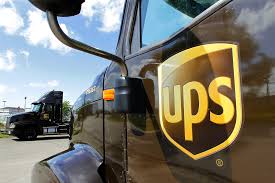 Consumers demand more home delivery when they shop online, and demand not to pay shipping fees when they do so. Retailers have been struggling to increase their e-commerce business while offsetting declining foot traffic to physical stores. It also requires them to compete heavily with Amazon.com. The holiday shopping season sees the highest amount of deliveries. UPS global deliveries over the past 7 years has steadily increased, with 712 million deliveries during the peak holiday period in 2016.
Consumers demand more home delivery when they shop online, and demand not to pay shipping fees when they do so. Retailers have been struggling to increase their e-commerce business while offsetting declining foot traffic to physical stores. It also requires them to compete heavily with Amazon.com. The holiday shopping season sees the highest amount of deliveries. UPS global deliveries over the past 7 years has steadily increased, with 712 million deliveries during the peak holiday period in 2016.
UPS announced this week that it plans to charge retailers extra fees during the busiest weeks before Christmas. These additional fees hit all retailers, from WalMart, to Macy’s, to Amazon itself, who all count on UPS, FedEx and USPS to make their deliveries to customers’ homes. Retailers will need to decide over the next few months how to handle these extra charges, which is frustrating when trying to compete against Amazon and WalMart and others. With consumers reluctant to pay shipping charges at all, passing rates onto the customer may not be an option. They may need to increase the prices of goods or eat the costs themselves – also not good options. Some may try to spread holiday deals to other weeks during the season.
UPS maintains that it needs to increase rates during the peak week time of Black Friday to Cyber Monday and December 17-December 23, with a $.27 surcharge on all ground packages, to maintain its margins. FedEx announced its quarterly profits on Tuesday, and simply said they are considering surcharges to offset higher costs during the holidays, but are looking at all options.
Sources: Wall St. Journal, US News & World Report


